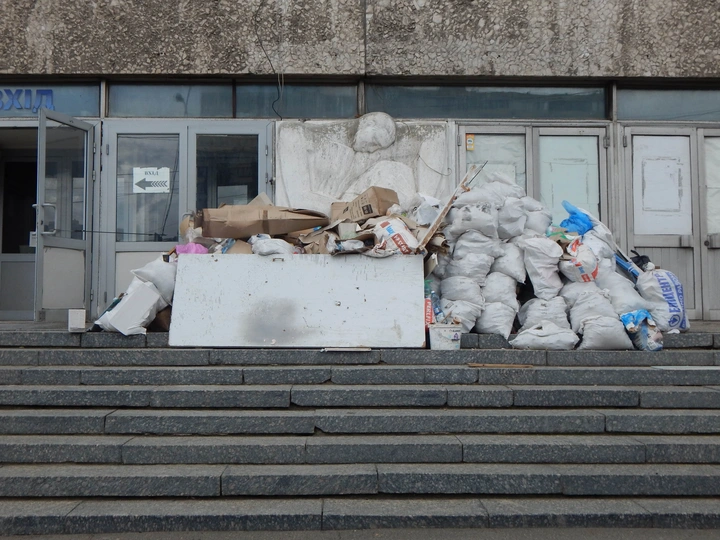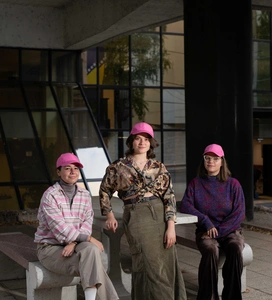lomi * a traditionally informal waste practice

Bíborka Bánszegi
Atina Annamária Edvy
Dániel Győrfi
Eszter Hegedűs
Lilla Kammermann
Janka Prőhle
Kata Ramocsai
Emese Szilágyi
Lilla Luca Varga
Girls, scan the urban fabric! Since the first project in 2020, we kept looking for the invisible layers and connections of the built environment around us. The collective was founded within the TU Budapest by young practitioners of architecture, urbanism and cultural heritage. Our research project Tripping on Modernist Monuments aims to understand the patterns behind the demolition of the 20th century heritage, especially present in Hungary:
Breaking with the (academic) tradition of looking to the West we travelled East to meet the non-governmental initiatives protecting the built environment, even buildings 50 years young, from demolition. Having visited Romania, Moldova and Ukraine – in the last months before the next front of the war opened – we encountered a myriad of exemplary projects and identified patterns. Our goal is to find a pan-European toolkit to save these endangered buildings, and view them in their true complexity of building materials, reuse potentials, historical and political context. After several exhibitions in Budapest (Design Week, Cities After Transition Conference) we wrote our first, awarded research paper.
Addressing the question of language barriers, not just as a challenge in the knowledge exchange in former Eastern Bloc, but also in our immediate community, and embracing the potential of language as an emancipatory tool: Our latest exhibition titled rontom-bontom (I demolish, I destroy) defined the lack of proper terminology describing the post-socialist Budapest’s transformation. In the past year, we curated an exhibition for Budapest 150th anniversary about semi-public spaces of resistance of the 70-80s, lead a university course at TU Budapest, unveiled the first non-allegorical female statue in the university garden on Women’s Day, gave tours and workshops for TU Graz and TU Berlin students visiting us, and concluded a research project exhibited at VUT Brno’s gallery. We would love to continue this work and open new horizons.
The Hungarian term lomi * stands for the act an informal bulky waste reuse practice established as a parallel structure to the formally organised municipality Budapest bulky waste collection – including valuable building materials like used sanitary facilities, windows and doors and unused surplus materials of house and home renovations. For one night a year, each neighbourhood turns into an informal market. Even though the bulky waste becomes legally the municipality’s property before the official collection people claim the space and waste and resell stranger’s waste it in a to passers-by on site before dawn or transfer it to rural regions for repurposing. We identify the lomi * as an asterisk, as a focal point in the undetected constellation, an asterism, ⁂.
This typographic symbol is to indicate minor breaks and to call attention, although nowadays this usage of the symbol is nearly obsolete. By reintroducing this sign of ⁂ carrying a spacial quality, we mark the unmapped constellation of lomi * search for the invisible connections behind the phenomena. lomi * is an interface between the urban consumption and overbuilding tendencies and shrinking cities in rural Hungary, which is functioning as a container of unused building units and as a used building material depository. The informal structures and people working in the non-govermental lomi * industry are carriers of unmapped knowledge and practices in the circular economy.
We aim to introduce the yearly lomi * action as a sub-cycle to the building life cycle to maps bigger processes on an illustrative way on eye level, but as of today only one paper has been ever written of this phenomenon. The knowledge accumulated through decades of multi-generational lomi * tradition could be a much needed impulse to the top-down and globally oriented waste discourse, and we are curious of finding similar patterns throughout Europe and the Mediterranean.
